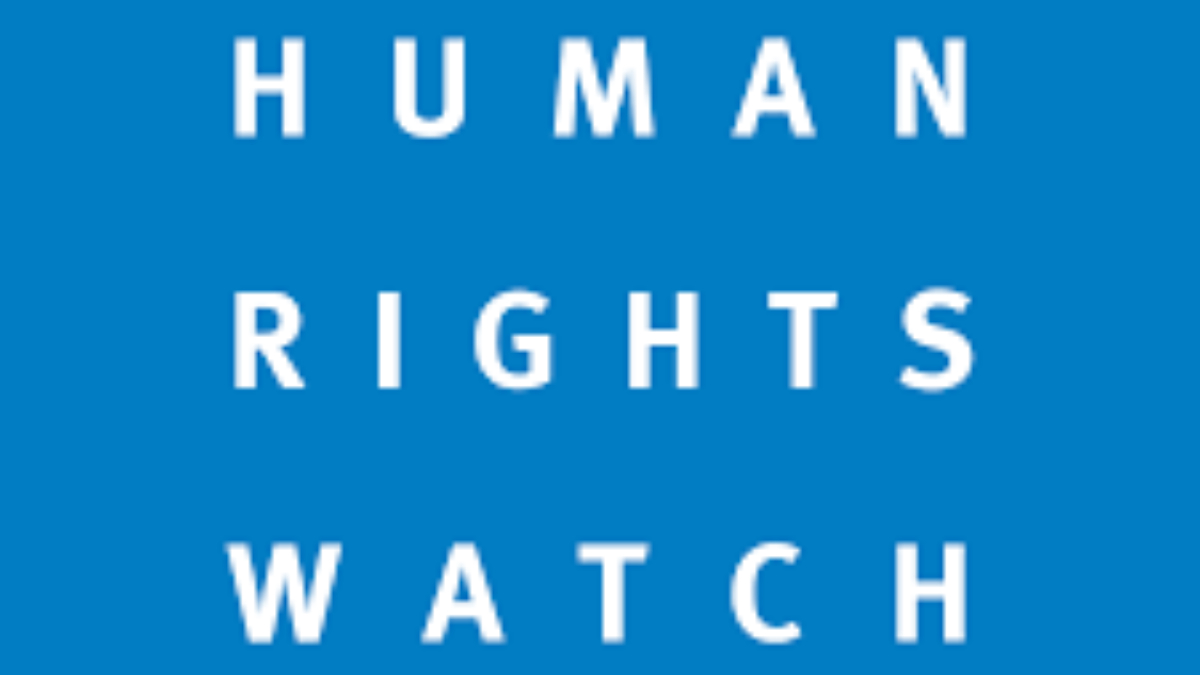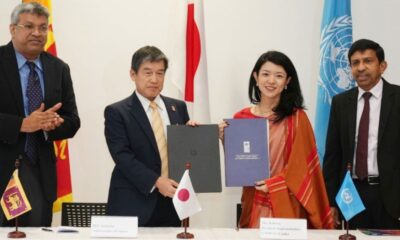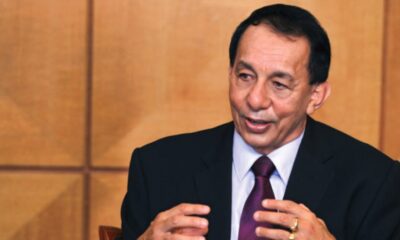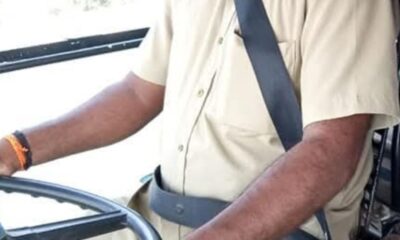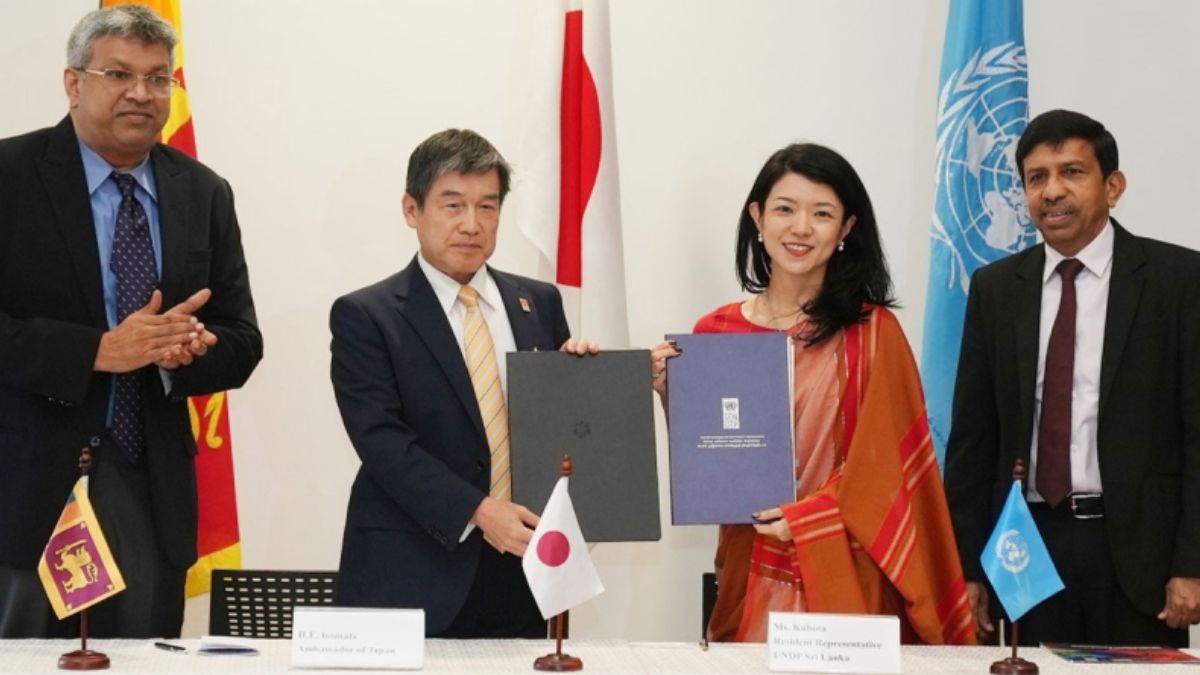The government of Sri Lanka’s proposed Anti-Terrorism Act would empower the authorities to systematically violate fundamental human rights, Human Rights Watch has said.
In a statement, the HRW said “The government should withdraw the bill and ensure through consultations that any counterterrorism legislation upholds international human rights standards.”
The statement further notes :
The government pledged to adopt an improved law following domestic and international criticism of abuses under existing counterterrorism legislation. But instead of addressing the problems, the bill would expand the definition of terrorism to include crimes such as property damage, theft, or robbery, and restrict the rights to freedom of assembly and speech.
“The proposed counterterrorism law would permit the Sri Lankan government to continue to use draconian measures to silence peaceful critics and target minorities,” said Meenakshi Ganguly, South Asia director at Human Rights Watch. “The government’s crackdown on dissent and misuse of existing counterterrorism laws to arbitrarily detain protesters highlights the obvious risk of abuse.”
The Anti-Terrorism Bill, which was published on March 22, 2023, is intended to replace the notorious Prevention of Terrorism Act (PTA), which led to widespread torture and arbitrary detentions since its introduction in 1979. While the new bill contains some improvements, it includes provisions that will facilitate abuse. The bill appears designed to give the president, police, and military broad powers to detain people without evidence, to make vaguely defined forms of speech a criminal offense, and to arbitrarily ban gatherings and organizations without meaningful judicial oversight.
In response to criticism from Sri Lankan activists and lawyers, the United Nations Human Rights Council, foreign governments, and the European Union, successive Sri Lankan governments have repeatedly promised to repeal and replace the PTA with rights-respecting legislation.
The Anti-Terrorism Bill is largely based on proposals presented in 2018, when Sri Lanka’s current president, Ranil Wickremesinghe, was prime minister. The 2018 bill was criticized over human rights concerns and was not enacted. Justice Minister Wijeyadasa Rajapakshe recently expressed satisfaction with the new draft and told journalists that “we won’t make any major change to the current version.”
In 2021, the UN independent expert on human rights and counterterrorism set out five “necessary perquisites” to ensure that Sri Lanka’s counterterrorism law complies with international rights standards. They include providing an appropriate definition of terrorism, ensuring precision and legal certainty, provisions to prevent arbitrary detention, measures that adhere to the absolute prohibition on torture, and due process and fair trial guarantees including judicial oversight. The Anti-Terrorism Bill does not fully meet any of these standards, Human Rights Watch said.
Its definition of terrorism is vague and overbroad and can include peaceful protest or acts that, while criminal, do not rise to the level of any reasonable definition of terrorism. Offenses include participation in certain “unlawful” assemblies if the aim is to “intimidate” the public or “wrongfully” compel the government to act in a certain way, as well as “theft” or “robbery” of government or private property, even if these acts are not intended to cause death or serious harm. The government is currently facing strikes, including by public sector workers. In 2022, the authorities used counterterrorism powers to arbitrarily detain three student leaders after widespread protests over corruption and misgovernance forced both the president and prime minister to resign.
While under the PTA, the authorities can detain a suspect for up to a year on orders signed by the defense minister, the proposed bill gives the authority to issue detention orders to deputy inspector generals of police, increasing risk of abuse. The police could take a detainee from pretrial detention back into police custody, and the defense secretary could transfer a detainee to the custody of “any authority.” This puts suspects at greater risk of torture and other ill-treatment, as abuses under the current law demonstrate.
The proposed bill grants police and military sweeping powers to stop, question, search, and arrest anyone, or seize any document or object without a warrant, if they believe they have “reasonable grounds.” The military, which is not trained in law enforcement, would have 24 hours to transfer a detainee to police custody, placing detainees at greater risk of abuse.
It also provides the president power to issue regulations for “rehabilitation” programs if the attorney general has decided to defer or suspend prosecution. The attorney general could then “impose” “voluntary” rehabilitation on a person who has not been convicted of any crime. In 2021, the Supreme Court stayed similar regulations. The authorities have long committed human rights violations against people accused of terrorism or of drug use, who are incarcerated without trial in government “rehabilitation” programs.
The president, on the advice of the police or military, would be authorized to declare any location a “prohibited place,” with up to three years in prison for violations. This appears to be an attempt to prevent a repetition of the largely peaceful 2022 protests in the capital, Colombo. The government had declared “high security zones” under the Official Secrets Act, which were withdrawn following widespread condemnation.
The bill expands broad powers to criminalize speech that is “likely to be understood” as encouragement or inducement to commit or prepare for terrorism, with the burden of proof on the defendant to show that was not their intention. These offenses also apply to those who publish, distribute, sell, or transmit “terrorist publications,” which could have a further chilling effect. In the past, the government has used the PTA to detain people who commemorated Tamil victims of Sri Lanka’s civil war on social media on the grounds that they were “glorifying” terrorism, which is also an offense under these proposals.
The president would be authorized to ban an organization if authorities have “reasonable grounds” to believe it is acting in a manner “prejudicial to the national security of Sri Lanka, or any other country.” In the past, the government has proscribed Tamil diaspora organizations advocating for human rights and accountability as “terrorist organizations,” and human rights organizations have faced government interference in their banking and finances on the pretext of countering “terrorist financing.”
The bill provides for the death penalty for the terrorism offense of murder, although Sri Lanka has observed a moratorium on executions since 1976. Sri Lanka should abolish the death penalty, which Human Rights Watch opposes in all circumstances because of its inherent cruelty and finality.
The bill includes some new due process protections, including that confessions to the police will not be admitted as evidence, and that female suspects should be searched by women officers. There are new procedures for reporting and notifying the reason for an arrest, providing access to translations of documents in a language a detainee understands, and presenting a detained person before a magistrate every 14 days. It also clarifies the procedures that a magistrate should follow if a detainee appears to have been tortured.
However, the two ostensibly independent entities proposed under the bill, the Board of Review to hear appeals against detention orders, and the Independent Review Panel to advise on rights-respecting implementation of the law, would not be independent by law.
Until new counterterrorism legislation that upholds human rights is drafted, the government should impose a full moratorium on the use of the PTA and take steps to repeal it, Human Rights Watch said.
Successive Sri Lankan governments have offered repeated assurances to the EU that they would uphold rights commitments, including by repealing the PTA, in exchange for tariff-free trade access under the Generalised Scheme of Preferences Plus (GSP+). The trade access is conditioned to the ratification and effective implementation of key human rights treaties. In its latest monitoring report, the European Commission said that Sri Lanka “still has to deliver on a number of important reforms.”
Sri Lanka’s international partners, including the United States, EU, Japan, India, and others should press for genuine reforms to ensure this bill meets Sri Lanka’s international human rights obligations, Human Rights Watch said. The EU should make it clear that replacing the present counterterrorism law with similarly abusive legislation does not address its concerns and could affect Sri Lanka’s GSP+ status.
“The Anti-Terrorism Bill needs to be seen both in light of Sri Lanka’s abusive history of counterterrorism powers and the current government’s repression of peaceful dissent,” Ganguly said. “Sri Lanka’s international partners should make it absolutely clear that they will not reward this abuse with trade preferences and other support.”
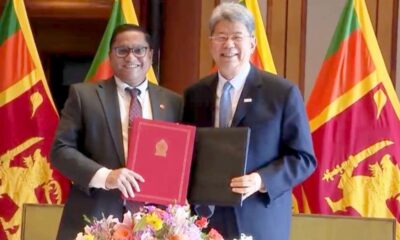
 BIZ2 days ago
BIZ2 days ago
 News3 days ago
News3 days ago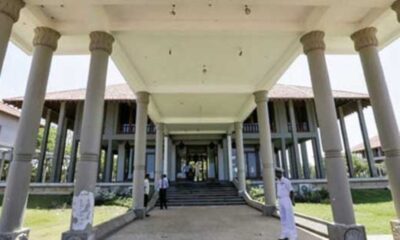
 News3 days ago
News3 days ago
 News1 day ago
News1 day ago
